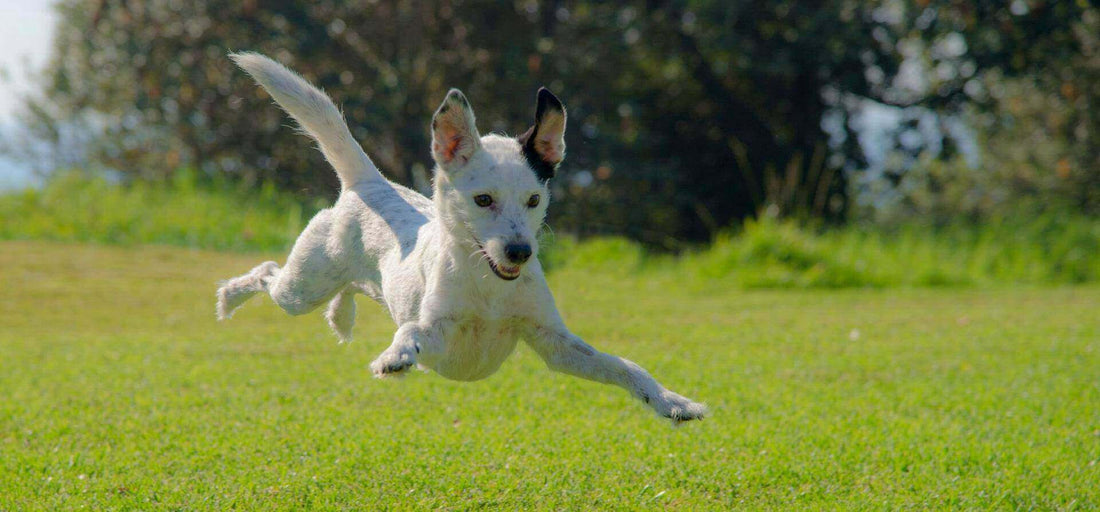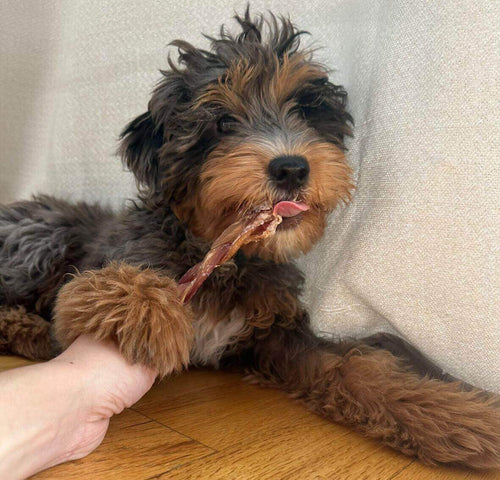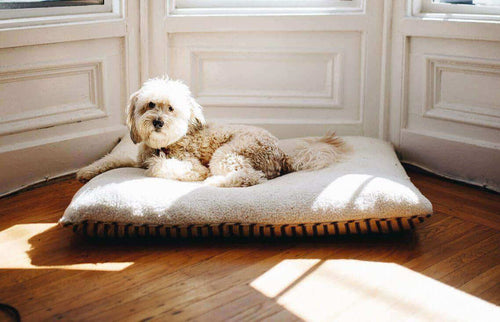
9 Tips Before Going To The Dog Park
Share
Dog parks are one of the happiest places in the world. Cute pups playing, exploring, and running together, what's not to love? Dog parks are also a great outlet for high-energy dogs to get the exercise they need, while also building their socialization skills. Whether you are a dog park connoisseur or planning to go for the first time, there are several things you should know before taking your dog off-leash in this fun-filled place. Here's our checklist of the dos and don'ts of the dog park!
1. Be Up-To-Date on All Vaccinations
To protect your dog and others, having your dog completely up-to-date on all of their shots is essential when going to the dog park. According to Preventive Vet, these are the core vaccinations your dog should have:
- Canine Parvovirus
- Canine Distemper
- Adenovirus
- Hepatitis
- Rabies
Puppies under 4 months old should never enter a dog park as it could expose them to viruses like Canine Parvovirus (Parvo), a dangerous canine sickness with a high mortality rate if left untreated. Veterinarians even recommend waiting one week after your puppy has completed all of their "puppy shots" (around 17 weeks old) before going to the dog park, giving their body time to build up immunity,
Note: 4 Paws Veterinary Care also recommends your dog have their Bordetella, Canine Influenza, Lyme, and Leptospirosis vaccines for extra protection. Please consult with your veterinarian about recommended vaccines for your area, as these can vary from state to state.
2. Know Your Dog’s Temperament
Every dog has a different temperament, and it’s important to know your dog’s before taking them to the dog park. Are they uneasy around large groups of unfamiliar dogs? Are they a runner and need to be in a fenced-in park? How do they react to large dogs versus smaller dogs? These are all questions you should ask yourself before taking your dog to the park.
If your dog is new to your family, we recommend you wait until you get to know their behavior before taking them to the park. Let them meet your friends and family to see how they are with new people, and take them on walks to see how they react to unfamiliar noises and being outside your home. Want to learn more about temperament testing? Check our WikiHow. Pet's article on How To Temperament Test A Dog for more information.

3. Big Dogs vs Small Dogs
Many dog parks have different sections for large dogs and small dogs, and it’s important to respect this rule. While small dogs are typically welcome in the large dog park (at your own risk), bigger dogs should not enter the small dog park. A small dog park is meant for dogs typically 30 pounds and under, and having large dogs present can put stress on the smaller dogs, and could even be dangerous.
4. Fenced-In Parks vs Open Parks
Choosing between fenced-in parks and non-fenced parks comes down to your dog's temperament off-leash and the relationship between you and your dog. While some dogs thrive on giant, open fields, playing frisbee and sprinting, it's not suitable for all dogs. Taking your dog off-leash to a park that's not fenced means they could potentially run off without you and become lost. If your dog tends to run away, isn't fully trained, or is new and doesn't have a strong bond with you yet, we highly recommend visiting a fenced park.
However, if your dog tends to stay near you when off-leash, comes when called, and you both have a strong relationship, open parks could be a fun opportunity to explore and get some exercise, but always make sure they are microchipped or have a collar on with current identification tags!
5. Treats: Yes or No?
If your dog is food motivated, it may be wise to bring some easy, light treats with you to the park in case your dog is still in training. We highly recommend a baggie of our Rolled Food cut up or Choppers broken into bite size treats, as a great dog park treat! However, it’s important that you do not feed treats to other dogs in the dog park without their owner’s permission. Just like people, some dogs have food allergies that you may not be aware of, so always ask first and keep your treats with you at all times.

6. Don’t Dress Up Your Dog
While a coat or sweater may be necessary for your dog in the colder months, it's best to leave the cute tutus and more extravagant clothes at home. Other dogs at the park may think of clothing as a toy and rip it off your dog. The clothing could also get caught on fencing, bushes, or even on other dogs' collars which could be frightening to them.
7. Bring Your Own Water/Water Bowl
Keeping your dog hydrated at the dog park is important, and helps prevent heatstroke, upset stomachs, and dry noses. While most dog parks have water bowls available, dozens of dogs drinking out of the same bowl in a day increases the chance of viruses and bacteria spreading. It is best practice to bring your own water and travel bowl to the park to help prevent any sicknesses and be guaranteed fresh, clean water.

8. Understand The Risks
Incidents are bound to happen at the dog park. Dogs will occasionally get into fights, dogs may knock you over, and some dogs may hop the fence or sneak out through an open gate. It's not wise for young children to attend the dog park, as they could get knocked over or jumped on by excited dogs who might not be used to kids. Most dog parks are not responsible for any incidents that take place, and it’s up to you as the pet parent to be responsible for all your dog’s actions.
9. Clean Up After Yourself and Your Dog
Poop happens, and it’s important to clean up your dog’s messes, especially at the dog park. Viruses can easily spread through fecal matter which could affect dozens of dogs. Always bring poop bags with you to clean up your dog’s messes and throw them away in the nearest trash can.
If you bring any treats, food, or toys with you, be sure to also throw those away or take them with you to avoid other dogs eating food they shouldn't or choking on trash or ripped-up toys.
BONUS: Have Fun!
Going to the dog park is a great way for not only your dog to make new friends, but you as well. There's no better ice-breaker than talking about your pets! Parks are a wonderful way for your dog to learn and improve on unwanted behavior, teaching them how to be a better dog. Plus, there's nothing quite like the feeling of watching your dog have so much fun, and then look around for you to make sure you're still there.
Have any advice you'd like to share? Let us know in the comments!



